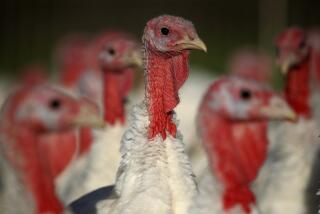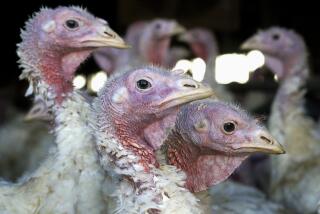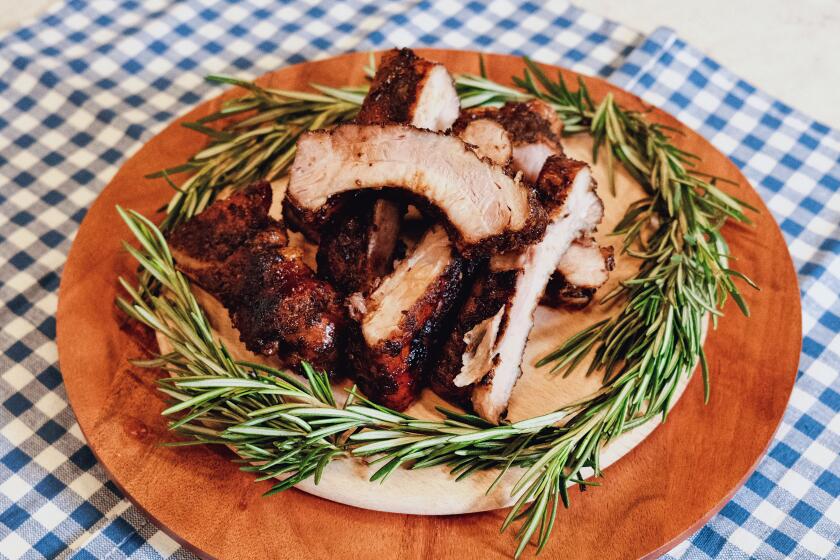Turkey’s lean profile
- Share via
If you gain a little weight this Thanksgiving, blame it on the stuffing, the corn bread, the mashed potatoes and gravy. Blame it on the pumpkin pie.
Just don’t blame it on the turkey.
“Turkey is wonderful healthy food . . . especially if you have breast meat,” says Susan Roberts, professor of nutrition at Tufts University in Boston.
And most especially if you take the skin off. Skinless turkey breast is about as close to a fat-free meat as you can get. Besides which, it’s loaded with protein, as well as some important vitamins and minerals.
It’s hard to find a nutrition expert who doesn’t think eating turkey is good for your health. Ironically, though, many scientists worry that turkey farming may be bad for public health in general. They fear that some widely used methods are implicated in the emergence of “superbugs” -- bacteria that are resistant to antibiotics, thus making some human diseases much harder to treat.
“We’re on the brink of a global crisis,” says microbiologist Lance Price, director of metagenomics and human health at the Translational Genomics Research Institute in Phoenix. “Some say it’s already here.”
Now, as the nation prepares to dig in and pig out, we consider several good reasons to give thanks for turkeys -- as well as a few bones some people have to pick with the industry. Plus we offer a little food for thought to help you decide which turkey you want to plump for at the store. See Page 6.
--
Animal farming hits humans where they eat
Poultry given too many antibiotics could affect our health. 6
Pick a bird that suits your taste and wallet
“Free range” or “hormone free”? We demystify the choices. 6
--
(BEGIN TEXT OF INFOBOX)
The perfect meat?
How a 100-gram (3.5-ounce) serving of cooked breast of turkey breaks down in basic nutrients:
135
Calories
--
30.1
Grams protein
--
0.7
Grams total fat
--
0.2
Grams saturated fat
--
White meat, dark meat? Skin or no skin? Compare the choices. 6
More to Read
Eat your way across L.A.
Get our weekly Tasting Notes newsletter for reviews, news and more.
You may occasionally receive promotional content from the Los Angeles Times.








